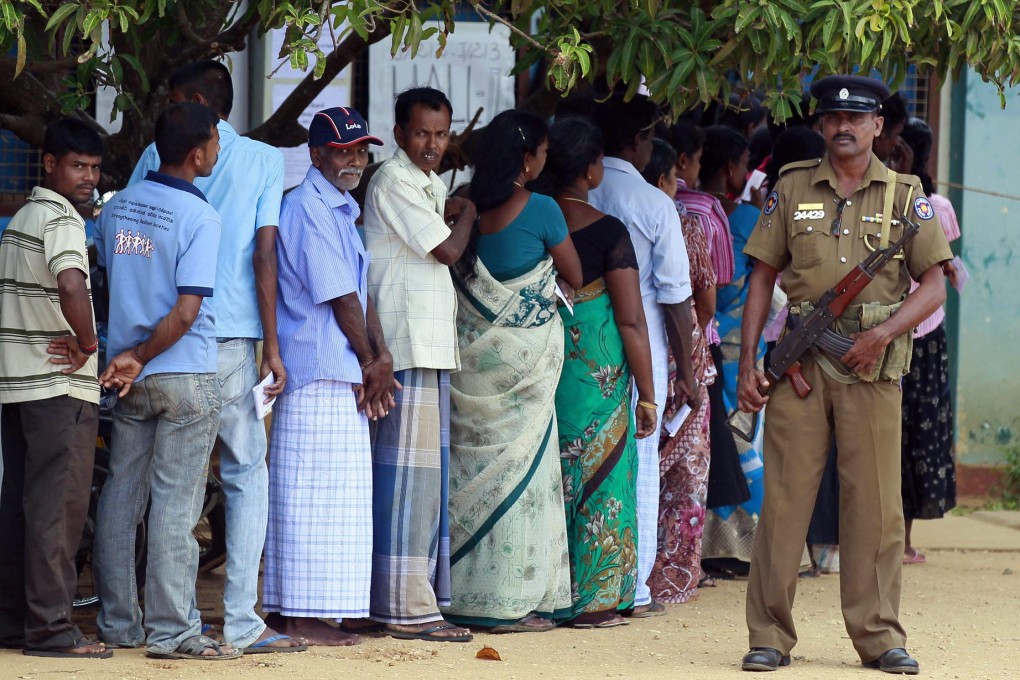Tamil party victory in Sri Lanka election could reignite tensions
Sri Lanka’s main ethnic minority Tamil party secured a landslide victory in a provincial poll that has threatened to rekindle animosity between the government and Tamils, four years after the military crushed separatist rebels and ended a 26-year war.

Sri Lanka's main ethnic minority Tamil party secured a landslide victory in a provincial poll that has threatened to rekindle animosity between the government and Tamils, four years after the military crushed separatist rebels and ended a 26-year war.
The Tamil National Alliance (TNA), the former political proxy of the defeated Tamil Tiger rebels, won 30 seats in the 38-member provincial council in the former northern war zone, election officials said yesterday.
President Mahinda Rajapaksa's ruling coalition won seven seats, while a Muslim party won one.

Defeat for the government, the most humiliating set-back for Rajapaksa since he assumed office in 2005, is largely symbolic.
But the TNA's victory shows that the defeat of the rebels in 2009 did nothing to subdue calls for autonomy among Tamils, who make up about 14 per cent of Sri Lanka's 20 million people.